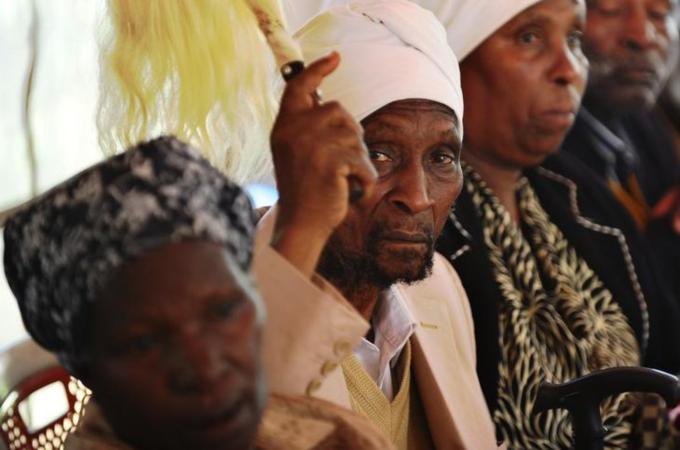
Mau Mau to Midnapore: A jittery UK government reveals itself before potential claims of former victims of the empire’s brutality
In August 1995 I wrote an article in The Spectator in Britain which the magazine titled “Enough Guilt for Everyone”, with the tagline: “The British demand apologies for Japanese atrocities, but never examine their own misconduct in Asia.”
I had been driven to write the article by the avalanche of media coverage that year in the United Kingdom about the fiftieth anniversary of the end of the Second World War, which endlessly claimed that Britain had been fighting for freedom and democracy during that war, and that the Allied victory was nothing short of the triumph of good over evil.
But the fact that a country which held a quarter of the world’s population in colonial subjugation could not possibly be fighting for the principles of “freedom and democracy” eluded most British commentators, who seemed high on a rush of patriotic fervour. It was unclear why so many in the UK were still clinging to this level of hypocrisy, which was both absurd and unnecessary.
Sick Men of South Asia
Pakistan and Bangladesh are separately traveling in the same direction, toward erasure from the political maps of the future. Pakistan ceased to exist 40 years ago. The secession, in 1971, of East Pakistan on the grounds of being Bengali rather than Muslim conclusively disproved the Two Nation Theory—even for those who had believed in it in the first place. If Pakistan wasn’t the homeland for South Asia’s Muslims, what was it? After the war, Pakistan could have rethought the basis of its existence as a political entity but didn’t. Instead, the Pakistan which remained tried to carry on, pretending that it was still the land of South Asia’s Muslims, just smaller … It never figured out why it should exist …
Bin Laden Location is Humiliation for Pakistan
Whichever way you look at it, the discovery and killing of Osama bin Laden in a comfortable house in Abbottabad within walking distance of Kakul (Pakistan Military Academy) and a short drive from the nation’s capital Islamabad, constitutes an abject humiliation for Pakistan. The options are limited. Either the Pakistani authorities did not know that bin Laden was there, apparently for several years. In which case their incompetence is so colossal that it should cause widespread panic, except that it beggars belief. Or the Pakistani authorities knew of bin Laden’s presence in their midst. In which case the worst cynics have been proved right. There are some tell-tale pointers as to which of these is more likely to be true. …
Did Churchill Starve Bengal?
I first heard Madhusree Mukerjee talk about her research on British imperial policy and the Bengal famine of 1943 about three years ago when she was visiting Oxford to study the Cherwell Papers at Nuffield College. She talked about it over lunch with me at St Antony’s and it sounded like a most interesting line of enquiry. Her book Churchill’s Secret War: the British Empire and the Ravaging of India during World War II (Basic Books, New York 2010) appeared late last summer. A few pages into the book – and I knew this was a game-changer. I contacted my colleague Faisal Devji, who runs the South Asia History seminar. Faisal invited Mukerjee to speak and she gave her very …

Will Pakistan Exist in 2050? Will India?
Amidst a depressing assessment of the ruin wrought by Pakistan’s floods, The Economist nevertheless pronounced a vote of confidence in the country’s survival: “Pakistan is not about to collapse: a prospect first aired at its bloody creation and dusted off for every war, coup and calamity that has followed.” (Leader, 18-24 September 2010). Indeed, India, now much feted as an “emerging power” had also been written off by many at its amputated start. So had Bangladesh when it came into being in 1971, famously dismissed by Henry Kissinger as a “basket case”. All three have managed to survive endless conflict, poor governance and natural disasters, and some of their citizens have notched up world-class achievements in a variety of fields, …










